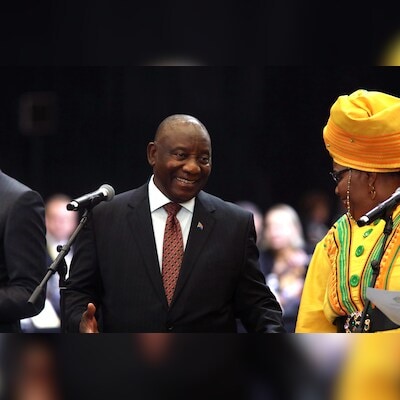In a historic move that has reshaped the political landscape of South Africa, Cyril Ramaphosa secured a second term as the country’s president on Friday. This victory was made possible through a groundbreaking coalition with former rival parties who have pledged their support to the African National Congress (ANC) in a new government of national unity.
Following the ANC’s loss of its majority in last month’s election, the party was compelled to forge alliances with other political entities. The Democratic Alliance (DA), a white-led, pro-business party, emerged as a key partner, signaling a shift towards cooperation and collaboration in governance. Additionally, the Inkatha Freedom Party and the Patriotic Alliance joined the alliance, showcasing a diverse coalition that aims to address the nation’s pressing challenges.
However, not all parties were part of this unity government. The Economic Freedom Fighters (EFF), a Marxist party, declined to be involved in a government that included the DA and the Freedom Front Plus. Similarly, former President Jacob Zuma’s uMkhonto we Sizwe (MK) party chose to align with smaller opposition parties in parliament, forming the “Progressive Caucus” to serve as the official opposition to the coalition government.
The parliamentary session saw the election of Thoko Didiza as speaker and Annelie Lotriet as deputy speaker. Ramaphosa’s reelection was secured through the support of his newfound political allies, marking a significant shift in the country’s political landscape. The president is set to be inaugurated on June 19, where he will usher in the seventh administration since the end of apartheid.
As the coalition government takes shape, negotiations among the parties will determine the composition of the executive branch. Key ministries such as finance, energy, foreign affairs, and public enterprises are expected to undergo significant changes with new appointments. The announcement of the cabinet is eagerly anticipated, as it will set the tone for the new administration’s priorities and agenda for the next five years.
In the midst of these political developments, South Africa stands at a critical juncture, poised to chart a new course towards unity and progress under the leadership of Cyril Ramaphosa.
